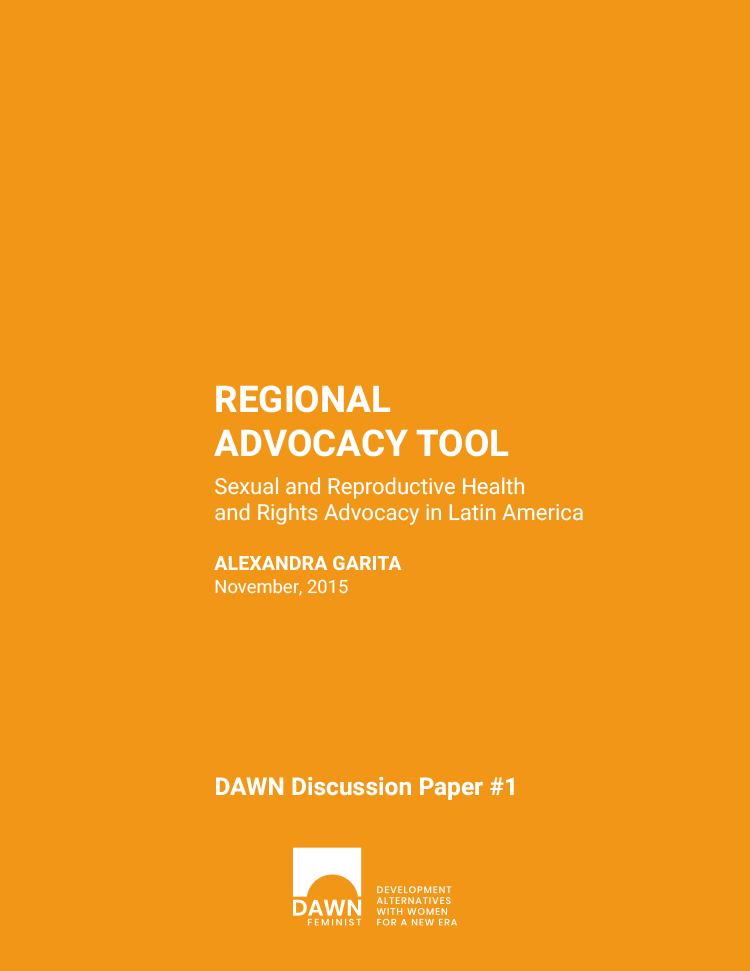Executive Summary
The Latin American region has some of the most progressive human rights and social protection policies and programs in the world. Despite this, many are still excluded, and perhaps the most pressing agenda in the region is the need to pay attention to equity, and to reaching the poorest and most marginalized within each country. For this to happen, countries must analyze population data by geographic location (urban/rural), sex, age, socio-economic status, ethnicity, race, gender, health status, etc in order to
effectively tailor their policies and programs to diverse needs. Investing in the health, education, and human rights protections of children, adolescents, and young people in the region will contribute to greater economic growth and social justice. Very few have access to safe and legal abortions in the region, making legal reform and provision of safe services where legal urgent priorities for public health, human rights, and justice. Attending to poor pregnant women with little access to maternity care with the necessary interventions is also an urgent priority, as is reaching women with the contraceptive method of their choice free from violence, coercion and discrimination. A significant number of Latin American countries have institutionalized the Programme of Action of the UN International Conference on Population and Development (1994) by changing their population policies from focusing on narrow family planning programs, to incorporating family planning into wider reproductive health services within a human rights framework. After 1994, Argentina, Bolivia, Brazil,
Colombia, Cuba, Ecuador, El Salvador, Guatemala, Honduras, Mexico, Nicaragua, Paraguay, Peru and Venezuela either created or strengthened reproductive health programs to provide women with the fertility
regulation method of their choice, maternity care, prevention of sexually transmitted infections, and adequate gynecological care within primary health care (Morlachetti, 2007). 1 The right to access information and to decide on the number and spacing of children by any necessary means are both implied in the national Constitutions of Brazil, Colombia, Ecuador, Guatemala, Mexico, Paraguay, Bolivia, Peru and Venezuela. In addition, the new Constitutions of Ecuador and Bolivia explicitly stipulate the right of
all people to make informed and responsible decisions, free from violence and coercion, about their sexual lives and the number of children they wish to procreate, adopt, support and educate (Morlachetti, 2007).2
Capital cities in the region have moved forward in guaranteeing lesbian, gay, bisexual and transgender people social protection and human rights in Mexico City, Montevideo and Buenos Aires. Chile has issued protocols for the distribution of emergency contraception and makes it obligatory to freely distribute and provide it to all patients who request it, without limitations to age or conscientious objection. Mexico City and Uruguay have legalized abortion in the first trimester, and Colombia has expanded the circumstances
under which safe abortion services are to be provided and guaranteed as a right. Undoubtedly, there are progressive forces moving sexual and reproductive rights in the region ahead. Despite normative progress, however, implementation is slow. Conservative and fundamentalist religious
forces in nearly all countries of Latin America have worked to prevent the translation of normative change into practical reality by opposing implementation of any laws or country-wide programs related to women’s
control over sexuality and reproduction and by supporting the maintenance of restrictive policies in relation to sexual and reproductive rights, particularly access to safe abortion services, assisted reproduction technologies, and comprehensive sexuality education.
1 Morlachetti, Alejandro: Notas de Población No. 85, CEPAL, 2007.
2 Ibid.

